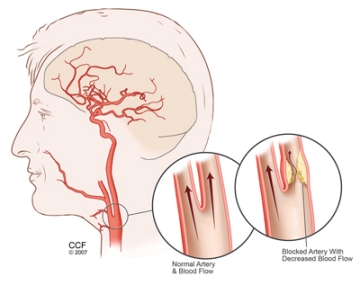A third of the brain’s volume is composed of blood vessels. Maintaining a healthy blood flow to those blood vessels is critical to keeping the brain young. Here are six ways you can keep your mind sharp:
Exercise
Research has shown exercise improves brain health, and it’s never too early or too late to begin. Even moderate exercise has been shown to increase memory, mental processing speed and the size of the hippocampus, the part of the brain responsible for forming new memories, even in previously sedentary adults. Simply walking three times a week has been shown to produce significant gains in memory and mental processing speed.
Eat right
Neurologists agree a diet rich in vegetables, fruits, whole grains and legumes will help keep the brain healthy. They also advocate eating fish, walnuts, flax seed or other sources of omega-3 fatty acids. Curcumin, found in the spice curry, may also be protective against Alzheimer’s. Conversely, a high-fat diet and obesity raise the risk for dementia. So do high cholesterol, diabetes and high blood pressure if left untreated.
Watch your levels
Research has shown high levels of the amino acid homocysteine is associated with a poor memory and doubles the risk of Alzheimer’s. Vitamin B12 and folic acid lowers the level of homocysteine, which is also associated with heart disease and strokes. Green, leafy vegetables and fruits contain folic acid; meat, fish, yogurt and fortified cereals contain vitamin B12.
Ease stress
Lowering the amount of stress in your life lowers the risk for dementia. A glass of wine (or other moderate alcohol consumption), laughter and meditation are all considered beneficial. A Harvard Medical School study showed 30 minutes of meditation a day for eight weeks even increased the size of the hippocampus. Studies at Loma Linda University have shown laughter reduces the stress hormone cortisol, which is toxic to the hippocampus.
Stay social
Maintaining an active social life provides mental stimulation and lowers stress. It also lowers the risk for dementia and Alzheimer’s disease. The more social activities, the better, and people who choose mentally challenging leisure pursuits such as playing cards with friends or joining a community organization do better in general than those whose activities are primarily physical or social. Living alone or avoiding social ties raises the risk of dementia.
Learn
More formal education is associated with lower rates of dementia and Alzheimer’s, but “use it or lose it” applies at any age — and more with the brain than the muscles, neurologists say. To keep the brain sharp, experts recommend learning new and fun mental activities. Crossword puzzles or sudoku, once mastered after a month or so, may not stimulate the brain the way learning a new language, picking up a musical instrument or joining a book club might.
Source: cnn news











